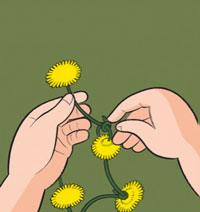 Chris Ware’s 2012 work Building Stories attracted a lot of attention because of its unusual format: a box of 14 publications of varying shapes and sizes, which can be read in any order. Ware says the work is about memory, in various ways, and reading the story in various non-chronological ways can give us different points of view on how its characters remember (or mis-remember, or forget) various things.
Chris Ware’s 2012 work Building Stories attracted a lot of attention because of its unusual format: a box of 14 publications of varying shapes and sizes, which can be read in any order. Ware says the work is about memory, in various ways, and reading the story in various non-chronological ways can give us different points of view on how its characters remember (or mis-remember, or forget) various things.
While Tim finds the examination of memory to be interesting in itself, and feels that the format enhances that, Kumar is less patient with it, wondering what the conclusion is, why all the characters seem so miserable, and whether the work’s form has any relationship to the content. This week, they discuss whether the work deserves a “historical landmark” plaque, or a wrecking ball.
AV Club review of “Building Stories”
Podcast: Play in new window | Download

Hey
I wanted to comment on this, it was just a matter of making the time.
I am a strong supporter of this book, and want to address a few points.
First, it’s okay not to like it. It’s not to everyone’s tastes.
But, to hear it be put down for being depressing, it was like going to a horror movie and asking, “Why is it so scary?” or complaining, “Why are there so many jokes in this comedy movie?” Ware’s mining a territory about the bleakness of everyday life. Not just in Building Stories, but in Jimmy Corrigan, and in other Acme books, he has this repeating theme asking why we can be so unhappy when we have easier lives than anyone in history. Why we want things so much and are ultimately disappointed in the end. It’s an existential sort of thing. Within that, there is a lot of humour, and I do often read his comics with a massive grin. But I also listened to Morrissey in high school, and have an appetite for that sort of thing.
About the structure of the book, I greatly preferred it to Jimmy Corrigan. The worst part of that book, in my opinion, is the happy ending, which seemed entirely unearned. The character showed no real progress throughout the book, so why would he be able to have a happy relationship by the end? Building Stories avoids that trap by having no end. People’s lives change, but usually it’s just incremental shifts, getting a pinch wiser as you get older, and I could feel that in these books.
The main thing though, is I felt you were looking too much into the author’s vision, when I don’t think he puts that much thought into it. It’s hard to say this to a podcast called Deconstructing Comics, but I think you need to shift your concept of a comic to fully enjoy it. I read a deep interview with him in the Imp years ago (http://www.amazon.com/THE-IMP-CHRIS-WARE-CARTOONIST/dp/B000NEZAJY) and much of what he said was that he doesn’t enjoy thinking about how and why comics work. That they were something to be enjoyed, not explained (that’s paraphrasing something I read a long long time ago, so my apologies if that’s a little off). He also talked a lot about Madame Bovary, and how much he loved the sensuality of the book, in creating an image. When I read his books, and especially Building Stories, I see him as being a sensual comic artist, in terms of trying to capture the complexity of experience and feeling people have. But not that he has a mission statement. I almost like his comics can be compared to mainstream comics as a fugue concerto to a pop song. Pop songs try to say something, even if it’s only a simple thing, but it’s much harder to grasp something that is simply an effort in synthesising feeling.
Reading the book, I could see it pushing the boundaries of narrative, in a way that is unique to comics, making for a more poetic experience, pictorially.
It’s not for everyone, but I genuinely have loved his work since I first picked up those early Acme Books. I read them late at night, laughing out loud at the audacity of them, especially issue 7. There are people getting pure pleasure out of it, even without a pat resolution.
A rambling comment, but there was so much to say about this book.
Hi, Ian,
Yes, we’ve been waiting for some comments on this episode. I was expecting my comments would rile up a lot of people, if only for being quite emotional and unanalytical.
I don’t think the “horror movie” / “comedy movie” comparison works exactly, because I didn’t go into this book expecting a “bleakness comic”. I think I expected… I don’t know. But life is varied and I feel like in Ware’s other work he captures that. To me this was not a fugue concerto, it was a single note, the same note played over and over again, just on different instruments. That’s what it felt like anyway. I was in kind of a depressed mood before I started reading it too, and that may have been a mistake. I don’t know.
I agree completely about the sensuality of Ware’s work. It’s why I enjoyed the silent parts most and wished there were more of them. It’s probably also why I preferred JIMMY more, even though you are right about the ending of that as well.
Anyway, several weeks later, I’m still thinking about it, and your comments have got me reconsidering again. Thank you for them!
KS